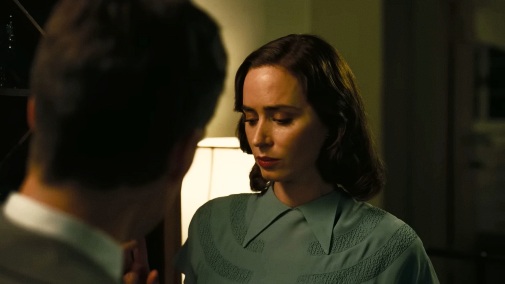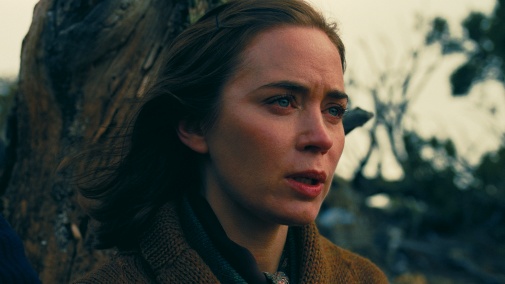
With Pain Hustlers new on Netflix, Emily Blunt continues to stake her claim in 2023. Indeed, we're heading into an awards season that could end with the British actress becoming, at long last, an Academy Award-nominated thespian. For over a decade, she has persisted as a contender who never makes it to the finish line, stranded with precursor support but no love from AMPAS itself. Hell, when the Almost There series eventually comes back, one could dedicate an entire month, if not more, to Blunt's many failed bids – from The Young Victoria to her SAG-winning turn in A Quiet Place. Keep in mind that The Devil Wears Prada, arguably her most egregious snub, was already covered a while ago.
In any case, hopes are high for Blunt fans, even if few would argue her performance in Oppenheimer represents the height of her talents. Not that it's any sort of meritless hack job…

Remembering her Kitty Oppenheimer, you're struck by Blunt's severity. Though the script makes few concessions for easy sympathy, the actress is even harsher in her approach. We meet the character as she starts an affair with Cillian Murphy's J. Robert Oppenheimer, their chemistry evident to the camera but also unglamorous. There's a selfishness to their union from the onset, exacerbated by the director's perspective and the cast's acting choices. When saddled with the role of mother, for instance, Kitty's discomfort is palpable right away, heightening with each subsequent scene until she's a drunken mess eager to abdicate maternal responsibilities.
It's a sobering vision that contradicts expectations of the clichéd supporting wife in historical biopics. Structurally, that's the part she's assigned, but neither Kitty nor Blunt will allow themselves to go gently into the night of spousal anonymity. She remains prickly throughout, striking against the protagonist's self-conception and martyr complex, way before the picture's de facto antagonist can verbalize it. Even when standing by her husband's side in the Nolan equivalent to a kangaroo court, Blunt makes the most of reactive closeups, culminating in silent shame during one of the film's scant sex scenes.
Yet, as much as one appreciates her deliberate rigidity, sometimes Blunt can overegg a line delivery, an emphasized gesture. When she finally gets a chance to shine, it's an Oscar clip that suffers a tad from how self-aware it remains of its own showcase nature. You applaud the gusto with which she sinks her teeth into the material, even as intellectual and emotional misgivings pile up. At last, beyond the main narrative's scope, the camera reencounters Kitty in old age, with Blunt now sheathed in effects makeup. Again, there's an underlining of brisk and bristliness, but also an attention to visceral detail in how she negotiates an old woman's dentures.
The quotidian discomforts of age are weaponized to make one final point of derision against a man for whom Kitty has lost all respect. It's an excellent place to leave the character and the performance, even if, in retrospect, it all feels a bit minor. Nothing in Oppenheimer reaches the heights of Emily Blunt's best work, whether in comedy or drama. Still, if this is how she gets that pesky Oscar nomination, it'll hardly be a tragedy. Better to see solid work get recognized than some truly awful turn. Oppenheimer mightn't crack Blunt's top ten, but it's no Stanley Tucci in The Lovely Bones kind of deal.

Do you think this is Emily Blunt's time? If so, how are you feeling about her first Oscar nomination coming through Oppenheimer?